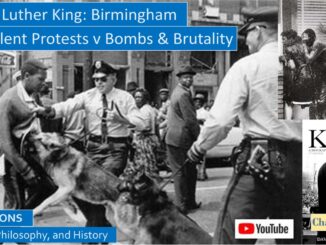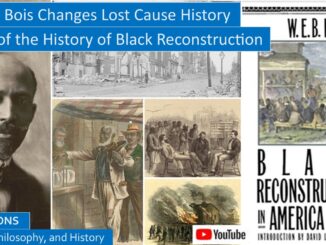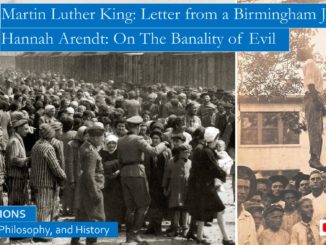
Martin Luther King, Birmingham, Nonviolent Protests v Bombs and Brutality, Biography Chapter 7
In September 1963, a black church in Birmingham was dynamited, killing four young girls and injuring several dozen others. Addressing the nation on television, President Kennedy proclaimed, “This nation is committed to a course of domestic justice and tranquility.” “If these cruel and tragic events can awaken that city and state, if they can awaken this entire nation,” “then it is not too late for all concerned to unite in steps toward peaceful progress before more lives are lost.” But no whites attended the funeral services of these four young black girls. […]


